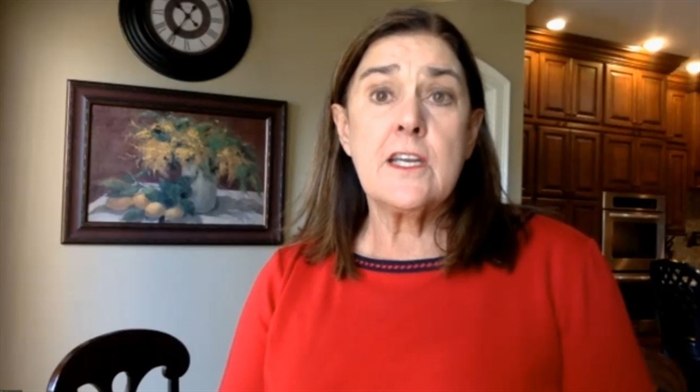SPRINGFIELD – Illinois Senate Republicans unveiled a package of ethics proposals Thursday which they say is targeted to stop the type of corruption that has led to the indictment of four legislative Democrats in recent months.
“Today we’re introducing a legislative package that targets corruption by focusing on two distinct areas: enhancing the state’s ability to enforce the laws we already have on the books; and ensuring that legislators are serving the public interest,” state Sen. John Curran, R-Downers Grove, said during a virtual news conference.
To enhance the ability to enforce laws, Republicans are backing bills to: allow the state attorney general to impanel a statewide grand jury to investigate, indict and prosecute bribery and misconduct by members of the General Assembly; provide state’s attorneys with wiretap authority; and grant the legislative inspector general the ability to investigate members of the General Assembly without first receiving approval from the Legislative Ethics Commission, while changing the composition of the commission to make its members part of the general public, rather than legislators.
Curran said inaction on corruption in Illinois breeds distrust in the system as headlines of indictments continue to mount.
Four Democrats from the General Assembly have been indicted since the start of 2019, including former Sens. Martin Sandoval of Chicago and Terry Link of Indian Creek, as well as former Rep. Luis Arroyo of Chicago. While the charges against Sandoval and Arroyo relate to their official business as lawmakers, Link’s does not, as he pleaded guilty to a tax evasion charge related to underreporting income.
State Sen. Tom Cullerton, D-Villa Park, was indicted on ghost payrolling charges but has pleaded not guilty and continues to serve.
Meanwhile, Commonwealth Edison, the state’s largest utility, admitted to corruptly seeking influence in the General Assembly and agreed to pay a $200 million fine. In the court document known as a Deferred Prosecution Agreement, in which ComEd made the admission, it was also noted that one of the main officials they sought to influence was House Speaker Michael Madigan, a Chicago Democrat.
While Madigan has denied any wrongdoing and has not been charged, ComEd claimed in the court document that it handed out jobs and contracts to close Madigan associates in an effort to curry his favor for legislation that benefitted the company.
Sen. Jil Tracy, R-Quincy, said it’s “understandable that people are skeptical of their government” given the recent headlines, which is why lawmakers are also taking aim at bills to ensure lawmakers “are working in the public interest.”
Other proposed measures would ban legislators from lobbying other branches of state government or units of local government for compensation – an activity that would have prevented Arroyo from receiving payment for lobbying the city of Chicago while he was a sitting legislator.
“This would stop a legislator from being able to leverage his or her position as an elected official at one level of government to influence action at another level for his or her financial benefit,” Tracy said.
Another bill backed by the GOP senators creates a revolving door prohibition preventing lawmakers from becoming lobbyists for one year after leaving office, or until the end of the current term.
Other proposed measures prohibit a legislator from leaving office and continuing to use their campaign fund to support lobbying activities and require further reporting on statements of economic Interests to enhance the disclosure of potential conflicts of interest.
The GOP senators faced questioning as to whether they would be able to work with Democrats, and they noted similarities in ethics proposals backed by the majority party.
On Aug. 13, the same day news broke that Link was indicted, General Assembly Democrats hosted a virtual news conference to unveil reforms calling for similar lobbying restrictions for current and retiring lawmakers.
On Thursday, John Patterson, a spokesman for Senate President Don Harmon, D-Oak Park, issued a statement saying, “They’ve got some interesting ideas. We look forward to them working with us to pass and enact meaningful ethics reform for the people of Illinois.”
Sen. Dale Righter, R-Mattoon, said he believes Democrats will be receptive because many of them are fed up as well.
“The supermajority is filled with good people who, I’m sure, the overwhelming majority of them are just as embarrassed by what they hear and read and see going on with their colleagues as we all are,” Righter said. “The question is whether or not we can help pull them away from a system that has developed …of systemic corruption, to pull them away from that. And the best way to do that is to for us to jointly, on a bipartisan basis, embrace these proposals.”
Sen. Dan McConchie, R-Hawthorn Woods, said the narrow focus of the bills introduced Thursday was intentional.
“This entire package is focusing on us cleaning up our own house,” he said of the General Assembly. “We believe that there are plenty of members on the other side of the aisle that want to do that.”
As to whether the measures will be heard in the fall veto session, which is scheduled Nov. 17-19 and Dec. 1-3, Righter said “that’s completely up to the Democrats.” Harmon’s spokesperson did not indicate whether the measures would be considered in the veto session.
Capitol News Illinois is a nonprofit, nonpartisan news service covering state government and distributed to more than 400 newspapers statewide. It is funded primarily by the Illinois Press Foundation and the Robert R. McCormick Foundation.

